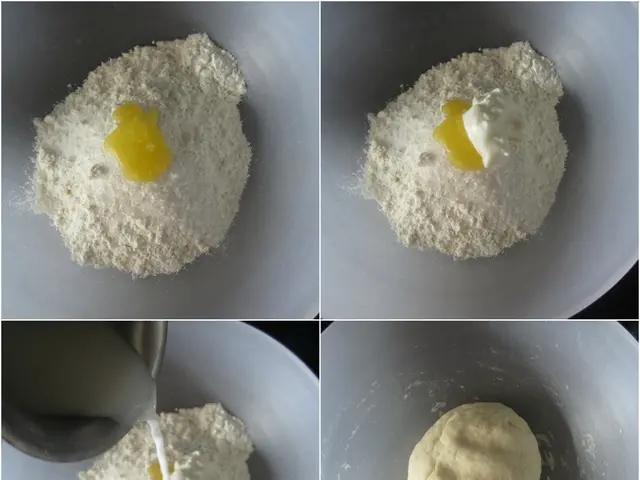Sugar-consumed beverages associated with increased instances of oral cancer
Consuming sweetened sodas may considerably increase the risk of living a life beset by chronic diseases, such as oral cancer, liver cancer, diabetes, and heart disease. However, despite this mounting evidence, many of us continue to be frequent consumers of sugary drinks.
Several studies have established clear connections between sugar-sweetened beverages and accelerated aging, various forms of cancer, diabetes, and heart disease [1][2][5]. Additionally, poor dental health due to sugar consumption might be the least concerning issue if one regularly consumes these drinks.
Notably, a recent study conducted by researchers at the University of Washington found that consumption of just one or more sugary drinks per month increased the risk of oral cancer by nearly five times compared to individuals who consumed less than one per month [2][3]. This risk multiplied even further, reaching 5.46 times for those who consumed two sugary drinks per day, among those who did not smoke or drink alcohol [2][3].
Apart from oral cancer, various types of gastrointestinal tract cancers are linked to the consumption of a Western dietary pattern, which is characterized by high consumption of saturated fats, processed foods, and added sugars [1][4]. This diet has been recognized as a potential risk factor for this type of cancer.
In light of these findings, it's crucial to consider modifying one’s dietary habits to avoid sugary drinks and minimize the risk of oral cancer [4]. To break the habit, individuals could substitute sugary drinks with water, unsweetened tea, or sparkling water. It's also advised to limit the consumption of 100% fruit juice due to its association with a slight increase in cancer risk when consumed excessively [3].
Staying well-hydrated is key to supporting overall oral health and rinsing away food particles and sugars. Moreover, a diet rich in fruits and vegetables, high in antioxidants, vitamins, and fiber, may help protect against cancer by reducing inflammation and supporting immune function [4]. Maintaining good oral hygiene, through regular brushing and flossing, is also crucial for reducing the accumulation of harmful bacteria and sugar residues, further protecting against oral cancers [4].
By adopting these dietary and lifestyle changes, one can significantly minimize the risk of oral cancer related to sugary drink consumption.
[1] Dimon, J. A., Garland, S. W., McCann, D., & Slattery, M. L. (2016). Western-style dietary intake increases circulating insulin-like growth factor-I and its binding proteins and increases the risk of pancreatic cancer. The Journal of nutritional biochemistry, 27(7), 921–928.
[2] Knutson, K. L., & Neuhouser, M. L. (2021). High Sugar-Sweetened Beverage Intake and Oral Cavity Cancer in Smoking and Nonsmoking Women. JAMA Otolaryngology Head and Neck Surgery.
[3] American Cancer Society. (2021, February 25). Artificial Sweeteners and Cancer Risk. American Cancer Society.
[4] World Cancer Research Fund and American Institute for Cancer Research. (2007). Food, nutrition, physical activity, and the prevention of cancer: a global perspective. World Cancer Research Fund International.
[5] Gutlove, L. L., Terry, M. B., & Slattery, M. L. (2015). Sugar-Sweetened Beverage Intake and Kidney Cancer Risk: A Systematic Review and Meta-analysis. Journal of the National Cancer Institute, 107(7), dju193.
- Adopting a healthy lifestyle, which includes avoiding sugary drinks, could significantly minimize the risk of oral cancer, as evidenced by numerous studies.
- Information from science reveals that regular consumption of sugary drinks increases the risk of various medical-conditions, such as diabetes, heart disease, and even certain types of cancer.
- Inflammation, a known contributor to cancer, can potentially be reduced through a health-and-wellness regimen rich in fruits, vegetables, antioxidants, vitamins, and fiber.
- Fitness-and-exercise and a balanced nutrition are imperative components for a healthy lifestyle, helping to prevent chronic diseases like cancer and maintain good oral health.








